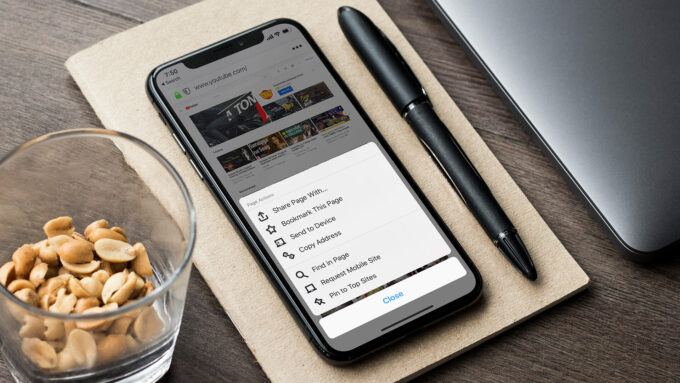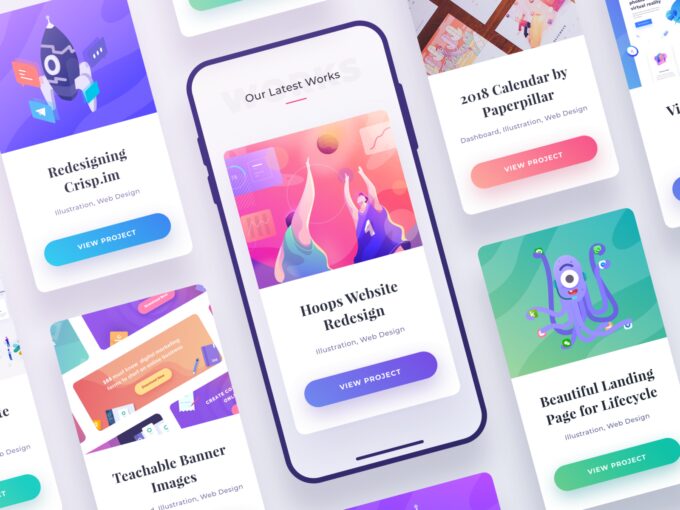Mobile applications are at their peak of popularity today. They are used for games, learning, getting services, shopping. They are comfortable, colorful, always at hand. The development of applications for Android is especially popular today. Because the number of devices on this platform has long exceeded 1 billion.
According to fireart.studio, modern custom mobile app development is an expensive project that requires financial investments, time expenditures, regular technical support and improvements. It can take a month or a year to popularize a product. So it is difficult to predict the return on investment in advance. Applications are relevant for online stores that hold a strong position in the market, have regular customers and good revenue, otherwise the project may fail.
Before starting the development, it is worth analyzing the customer base, determining the level of competition in the market, and also making a list of goals and objectives that the product must solve.
And if you are just thinking about expanding your business with the help of such an application, then hurry up before your idea is successfully implemented by competitors!
Applications are improving every day and at the moment they provide such business opportunities:
1. Be closer to the audience

Phones are always at hand, and the app simplifies the shopping process. Stanford professor BJ Fogga has developed a “formula for every action”, consisting of 3 ingredients. It’s motivation, opportunity and trigger. If you remove at least one of these elements, the purchase will not be completed. In other words, a person has a desire to buy a product, a smartphone with an application at hand. All that remains is to provide a trigger – a well-visible Buy or Register button. So that it is easy for him to use them. By the way, applications load product information much faster and have a higher level of usability.
2. Repeated interaction and return of buyers

The convenience of modern gadgets allows you to buy goods in a few steps. But a person can be distracted by anything – other people, messages, notifications, etc. Using the application, it is much easier to return a user than through a website. It is enough to send him a reminder about the goods left in the basket. By the way, another safe tool to return a customer and reduce the number of abandoned carts is the Masterpass digital wallet. The tool helps customers simplify the payment process by linking the
Masterpass wallet to their personal account on your website or mobile application once. When the buyer pays for the goods in your store for the second time, he will just have to click “pay with Masterpass”. And after the corresponding confirmation, the funds will be debited automatically. Direct integration with the Masterpass wallet via the interaction protocol will significantly reduce the number of payment steps. The client will be grateful for the time saved and are more likely to return for new purchases.
3. Personalization of messages

Receiving personal notifications tailored to his personal needs, the user begins to relate to the company more loyally. The likelihood that a customer will make an in-app purchase after receiving a notification about an interesting product is much higher than aimlessly surfing the Internet in a search engine.
Application development: from scratch to the first client
In fact, cross-platform mobile app development is not expensive, but time-consuming. The process itself consists of several stages:
1. Design

At the first stage, the customer meets with the contractor to discuss the features of the project, its details, as well as the goals for which it is created. It is important here to correctly outline your wishes so that the result is as close to the idea as possible.
2. Prototypes

Then the contractor creates the first prototypes to demonstrate to the customer possible options, various designs, and functions of the future application.
3. Making the product itself

When the style and functionality are approved, careful work begins on high-quality technical content, as well as the creation of a unique design for the application.
4. Stage of tests and improvements

At this stage, the product is tested for operability, and also demonstrates to the customer to make sure that it meets his wishes and ideas.
5. Publication for clients

When the application is ready, it is published in the Android Market if it is developed for Android devices, or in the Apple Store if the product was developed for iOS.
Why you should trust professionals

Many representatives of the IT industry today offer services for the creation of mobile applications. However, not all of them have sufficient qualifications in this matter.
After all, it is important not only to understand the technical side of the process but also to follow the innovations in this area, to apply marketing techniques so that the created application really works and brings profit to its owner. And only qualified specialists are capable of creating such a result, which are constantly being improved in this direction.
Today, many owners of Internet resources are faced with a choice: to create a mobile version of the site or a regular mobile application. Such a need arises in connection with the use of mobile devices by a huge number of people – for making purchases, ordering services, solving business-related issues, etc. What are the advantages and disadvantages of each of the options and what to choose in the end?
The Mobile version of the site has its advantages:

- Speed. The mobile site loads quickly on smartphones and tablets.
- Search engine visibility. Using a separate mobile site, you can “sharpen” it for the search queries of users of mobile devices.
- Availability. The creation of mobile applications implies their further download through the application manager. With a website, this is not required.
Disadvantages of a mobile site:

- Multiple URLs. Working with multiple sites takes more time and also requires additional SEO costs.
- Lack of versatility. The site will look different on touchscreen and keypad phones.
- The cost of creating mobile sites is significantly higher than the cost of developing custom mobile applications.
- Mobile app development has some advantages over mobile website development:
- Interaction experience. The mobile app has the best UX design and user experience.
- Access and speed. Applications can run on a mobile device even without an internet connection. Thus, your information will always be available to the user. The download speed is also significantly higher for the application than for the website.
- App visibility on a mobile device. After installing it, it is always on the screen, which increases the chances that the user will visit more often.
Of the minuses, it can be noted that a mobile application is developed, as a rule, for a specific operating system.









